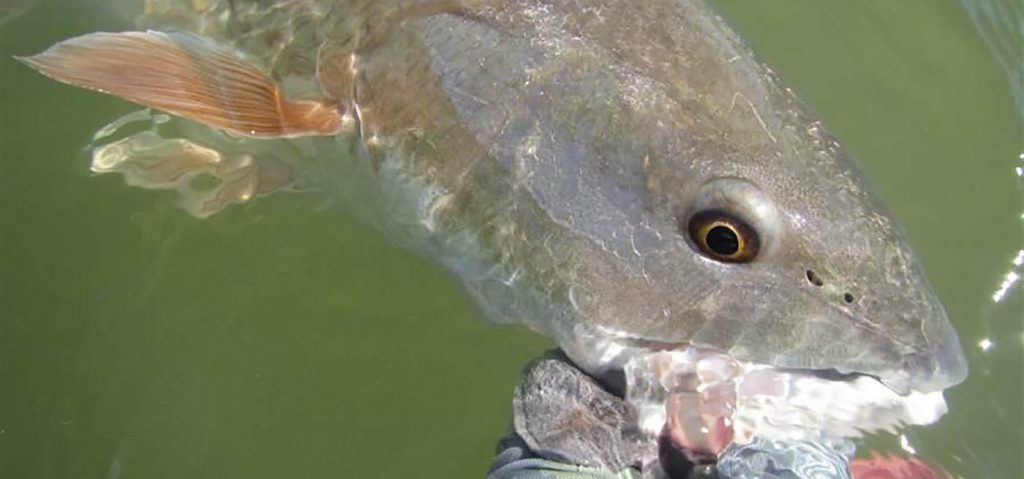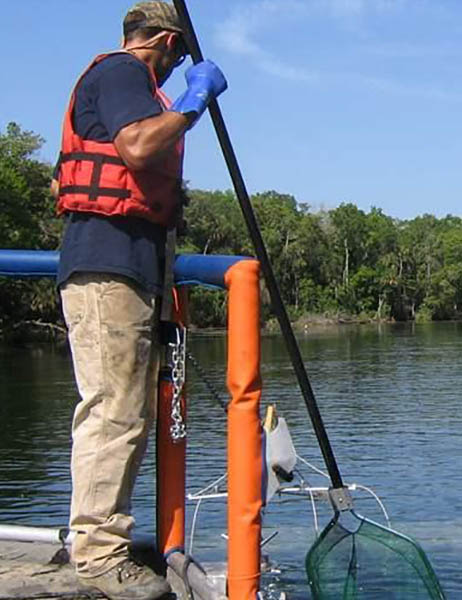2017 Fellow Ed Camp

Edward Camp prepares to release a redfish caught on a lure that imitated a crab near Crystal River, Florida, in 2016.

Camp collects specimens on Florida’s Chassahowitzka River in 2009 by electrofishing—in which fish are stunned with electricity but not killed.
Dr. Ed Camp was one of the first recipients awarded the Forage Fish Research Program fellowship in 2017 while working as a postdoctoral scholar at the University of Florida. Ed’s postdoctoral research shed light on the dynamics of predators such as redfish and their diets of forage fish by examining gut contents from the FWRI database. Ed also examined population records of identified forage fish to determine their abundance relative to predators over time, revealing trends in their predator-prey dynamics and shifts in prey preference.
A primary challenge in Ed’s work was determining the most preferred species the redfish chooses to eat, whether it be opportunistically available or sought out by the redfish. “If I ate a hamburger, was it because I wanted it or because it was the only thing available?” Camp explained. “If I had a refrigerator full of salads and I chose the hamburger, then we have a better idea.”
Ed published some of this work in a recent article here Identifying forage populations of concern: A new perspective based on predator recruitment considerations. The research found that forage fish consumed by recruiting predators has an effect on predator populations and that the diets of these recruiting predators can be different from overall predator diets. The work also found that many monitored forage species show declining trends in abundance even though most of these species are not commercially targeted.
Since completing his postdoctoral work, Dr. Camp has transitioned his experience to a career as an Assistant Professor at the University of Florida where he is an applied, interdisciplinary, and quantitative scientists working to promote desirable outcomes in fisheries and aquatic systems. His current research focuses on interconnected ecological, socioeconomic, and governance dynamics influencing markets and ecosystem function. Is interested in working with management organizations to develop new approaches to governing fisheries through development of quantitative techniques to better evaluate actions affecting marine systems.